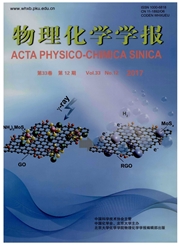

 中文摘要:
中文摘要:
用差示扫描量热法研究了固体溶菌酶的热变性以及水溶液中不同变性剂与浓度对溶菌酶变性的影响.结果表明,溶剂水的存在及变性剂尿素和盐酸胍的加入使溶菌酶的变性温度降低,变性焓减小;同时,在一定的浓度范围内,溶菌酶的变性温度和变性焓随变性剂浓度的增大而降低.盐酸胍的变性效果较尿素强,这是由于盐酸胍与蛋白质分子间除了氢键作用外还存在着静电作用.
 英文摘要:
英文摘要:
The thermal denaturation of solid lysozyme and the effects of denaturants and their concentrations on denaturation of lysozyme in aqueous solutions were studied by differential scanning calorimetry (DSC). The results showed that both denaturation temperature and denaturation enthalpy of lysozyme decreased as the existence of water and the addition of urea and guanidine hydrochlofide (GuHCl). In addition, denaturation temperature and denaturation enthalpy decreased as the concentrations of urea and GuHCl increased. As a denaturant, GuHCl is more effective than urea due to its added ability of electrostatic interaction.
 同期刊论文项目
同期刊论文项目
 同项目期刊论文
同项目期刊论文
 期刊信息
期刊信息
